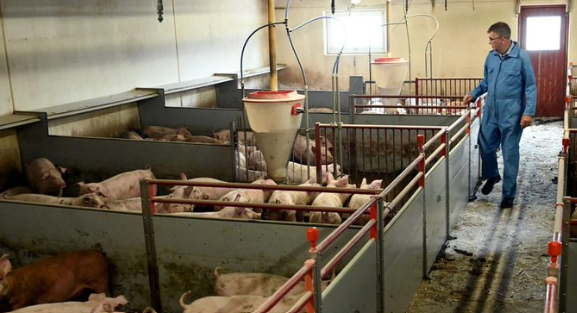More waste of taxpayer money for a fake agenda. This is why populist parties are rising everywhere.
The Danish government has reached a groundbreaking decision to implement Europe’s inaugural carbon tax on agriculture. This move comes after extensive five-month negotiations with various stakeholders in the farming and environmental sectors. The consensus was reached late Monday, marking a significant stride toward sustainable agriculture and environmental conservation in Denmark.
Starting in 2030, Danish farmers will be subjected to a carbon tax of 120 Danish krone (approximately $16) per metric ton of carbon dioxide equivalent emissions. This rate is set to increase substantially to 300 krone (around $40) starting in 2035. This progressive taxation structure is designed to incentivize farmers to reduce their carbon footprints progressively.
Denmark to charge farmers €100 a cow in first carbon tax on agriculture https://t.co/3nl1ndfLlI via @ft
— Prof Ioannis Ioannou 🌳 (@iioannoueu) June 25, 2024
In addition to the carbon tax, the Danish government has committed to a substantial reforestation initiative. An investment of approximately €5.3 billion will fund the transformation of 250,000 hectares of agricultural land into forests by 2045. Furthermore, by 2030, the government plans to set aside 140,000 hectares of lowland for conservation purposes and will initiate buyouts of specific farms to curtail nitrogen emissions.
Economy Minister Stephanie Lose hailed the agreement as a cornerstone for a historic reorganization of Denmark’s land and food production systems. This sentiment was shared on social media platforms, emphasizing the transformative impact this agreement is poised to have on the country’s agricultural landscape.
Denmark is a leading exporter of pork and dairy products, with its agricultural sector projected to contribute 46 percent of national emissions by 2030. The implementation of the carbon tax is expected to reduce carbon emissions by 1.8 million tonnes in its inaugural year, significantly contributing to Denmark’s ambitious goal to cut 70 percent of its total emissions by 2030.
#Denmark, a major #pork and #dairy exporter, will introduce a tax on livestock carbon dioxide #emissions from 2030, making it the first country to do so and hoping to inspire others to follow, the government has said. https://t.co/01cIXSZxNw
— European Supermarket Magazine (@esm_magazine) June 25, 2024
The negotiation process began in February and involved key organizations such as the Danish Agriculture and Food Council, the Danish Society for Nature Conservation, the Danish Food Federation, the Danish Metal Workers’ Association, and the Confederation of Danish Industry. These groups played a pivotal role in shaping the agreement, balancing the interests of economic development with environmental stewardship.
Denmark will set the first carbon tax on agriculture.https://t.co/OeB5rWTADn
— POLITICOEurope (@POLITICOEurope) June 25, 2024
Following the successful negotiations, the involved associations are now advocating for legislative approval of the deal. They anticipate that the agreement will be thoroughly reviewed and likely adopted after the summer legislative recess. This carbon tax initiative not only represents a significant environmental policy shift but also sets a precedent for other European nations to follow as they seek to reconcile agricultural productivity with climate change mitigation.
Key Points:
i. Denmark will implement Europe’s first carbon tax on agriculture starting in 2030, with initial rates set at 120 Danish krone per metric ton of CO2 equivalent, increasing to 300 krone by 2035.
ii. The government plans to invest approximately €5.3 billion in reforesting 250,000 hectares and setting aside 140,000 hectares of lowland for conservation by 2045.
iii. The agreement, resulting from five months of negotiations with farming and conservation groups, aims to restructure Denmark’s land and food production.
iv. The carbon tax is expected to reduce Denmark’s agricultural emissions by 1.8 million tonnes in 2030, helping the country meet its goal of cutting 70 percent of total emissions by that year.
v. Key stakeholders involved in the negotiations include the Danish Agriculture and Food Council, the Danish Society for Nature Conservation, and other industry groups, with a call for legislative approval after summer.
RM Tomi – Reprinted with permission of Whatfinger News



